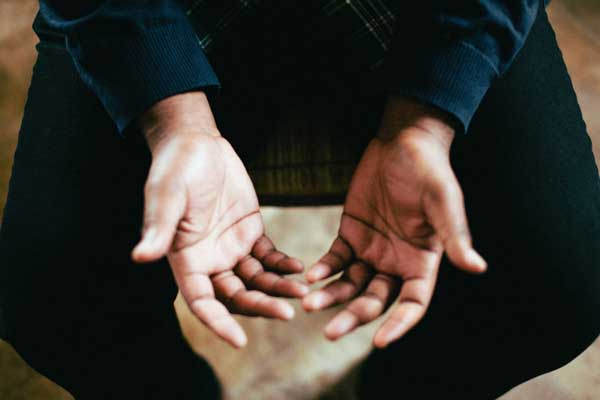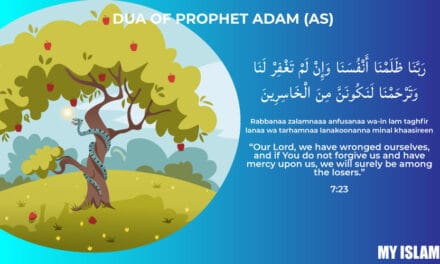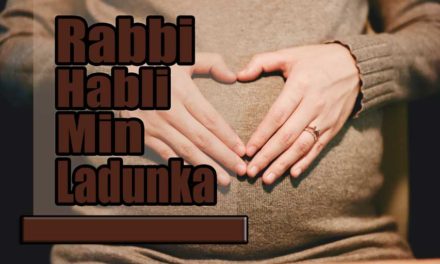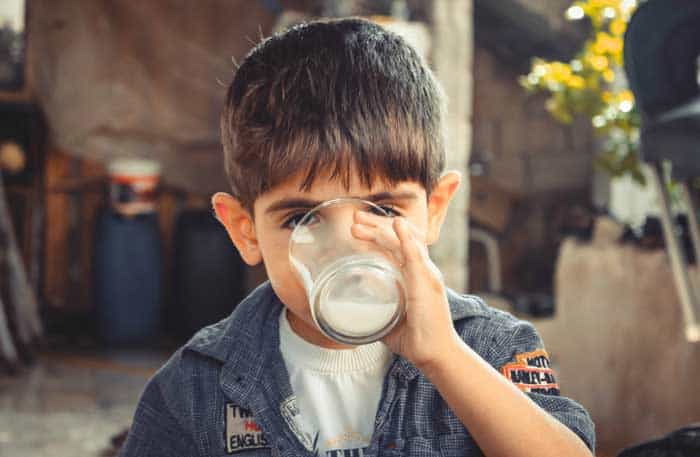We have all made mistakes, we are all humans… This is something we’ve heard a gatrillion times. We often tune someone out when we hear something like this. It’s not to say that it isn’t important or it isn’t true, it just seems redundant. We get it, we have faults.
What we don’t discuss often enough (maybe because it actually requires disciplined action) is how people can correct these mistakes. Fortunately for us Muslims, Allah has given us The Quran and Hadith with many powerful duas for forgiveness. To ask for Istighfar,
The doors of repentance is always open. Don’t wait to ask forgiveness in hopes of doing it tomorrow. Tomorrow is uncertain. We need to repent now and as often as we possibly could. We should make it a daily habit to seek Allah’s forgiveness, it is one of the essential parts of worship in Islam. The last thing we want is to have regret laying on our deathbed and say, “I could’ve done more”.
Asking forgiveness is not confined to only when we think we know we committed a sin. You can ask for forgiveness without knowing the things you have done wrong. The Sunnah of Prophet Muhammad (S.A.W), the man who Jannah is guaranteed, asked forgiveness of Allah seventy to a hundred times a day. (Sahih Bukhari Volume 8, Book 75, Number 39)
This begs the question what are my chances of going to Jannah if I am not repenting nearly as much as the Prophet (saws) himself?
Realize the importance of asking Allah for forgiveness. Below are 11 Powerful Duas you can try to incorporate into your life to make it habit of seeking daily repentance.
Astaghfirullah 100 times
Reciting Astaghfirullah 100 times daily was sunnah of prophet Muhammad (PBUH) and takes one or two minutes out of your day. This simple but powerful dua is one of the best duas for forgiveness.
The literal meaning of Astaghfirullah is “I seek forgiveness from Allah” It can also be used as an expression of shame. It’s being honest with yourself and Allah and admitting, “I should not have done that.”
Astaghfirullah benefits
Narrated by Anas bin Malik Allah’s Apostle said, “Allah is more pleased with the repentance of His slave than anyone of you is pleased with finding his camel which he had lost in the desert.” In Sahih Bukhari(Volume 8, Book 75, Number 321)
Some of the benefits of Astaghfirullah are listed below:
- Istighfar (asking forgiveness) removes any anxiety and increases likelihood duas will be answered.
- Opens the door of sustenance.
- Daily Istighfar opens the door of mercy and knowledge.
- Asking for Istighfar is a gateway to productivity (Also see 2 Duas to prevent laziness).
Know Allah is the most merciful
See names Al-Ghaffar and Al-Ghafoor.
Al-Ghaffaar means the one who forgives repeatedly. He who continually forgives and does not stop forgiving to those who come to him.
Al Ghafoor points to his nature of forgiveness, the quality and not quantity. He forgives the smallest of sins to the largest.
In the story of Adam (pbuh) he denied Allah’s wishes when he had no right to do so. And he reviled Allah when he had no right to do so. Despite all this here’s how Allah responded according to the messenger of Allah.
Allah the Almighty said: O’ son of Adam, so long as you call upon Me and ask of Me, I shall forgive you for what you have done, and I shall not mind. O son of Adam, were your sins to reach the clouds of the sky and were you then to ask forgiveness of Me, I would forgive you. O son of Adam,were you to come to Me with sins nearly as great as the earth and were you then to face Me, ascribing no partner to Me, I would bring you forgiveness nearly as great as it. It was related by at-Tirmidhi (also by Ahmad ibn Hanbal). Its chain of authorities is sound.
40 HadithQudsi – Hadith Number 34
Supplications for forgiveness
- Astaghfirullah – I seek forgiveness from Allah
2. ٱلَّذِينَ يَقُولُونَ رَبَّنَآ إِنَّنَآ ءَامَنَّافَٱغْفِرْ لَنَا ذُنُوبَنَا وَقِنَا عَذَابَ ٱلنَّارِ
Allazeena yaqooloona Rabbanaaa innanaaa aamannaa faghfir lanaazunoobanaa wa qinaa ‘azaaban Naar
”Our Lord! surely we believe, therefore forgive us our faults and save us from the chastisement of the fire” (Al-Imran, Chapter 3, Verse 16)
3. وَمَاكَانَ قَوْلَهُمْ إِلَّآ أَن قَالُوا۟ رَبَّنَا ٱغْفِرْ لَنَا ذُنُوبَنَا وَإِسْرَافَنَافِىٓ أَمْرِنَا وَثَبِّتْ أَقْدَامَنَا وَٱنصُرْنَا عَلَى ٱلْقَوْمِ ٱلْكَٰفِرِينَ
Wa maa kaana qawlahum illaa an qaaloo
Rabbanagh fir lanaa zunoobanaa wa israafanaa feee amirnaa wa sabbit aqdaamanaa
wansurnaa ‘alal qawmil kaafireen
All that they said was: “Our Lord! Forgive us our sins and anything We may have done that transgressed our duty: Establish our feet firmly, and help us against those that resist Faith.” (Surah Al Imran Chapter 3, Verse 147)
4. فَاغْفِرْلِي فَإِنَّهُ لاَ يَغْفِرُ الذُّنُوبَ إِلَّا أَنْتَ
faghfir li, fa innahu la yaghfirudh-dhunuba illa Ant(a).
Forgive me, For there is none who may forgive sins but You. (Al-Bukhari Book 20 Hadith 1875)
5. أَعُوذُبِكَ مِنْ شَرِّ مَا صَنَعْتُ
a`udhubika min sharri ma sana`t(u)
I seek refuge in You from the evil of what I have done.
6. أَبُوءُلَكَ بِنِعْمَتِكَ عَلَيَّ وَأَبُوءُ بِذَنْبِي
abu’ulaka bini`matika `alayya, wa abu’u bidhanbi(y).
I admit to Your blessings upon me, and I admit to my misdeeds.
7.

8. The Fifth Kalima (Astaghfar) we have MP3 version you can listen to on the six kalima article we wrote earlier about.
اللَّهُمَّأَنْتَ رَبِّي لاَ إِلَهَ إِلاَّ أَنْتَ 9.
AllahummaAnta Rabbi, la ilaha illa Ant(a).
Oh Allah You are my Lord, there is none worthy of worship but You.
10. اللَّهُمَّاغْفِرْ لِي ذَنْبِي كُلَّهُ دِقَّهُ وَجِلَّهُ وَأَوَّلَهُ وَآخِرَهُوَعَلاَنِيَتَهُ وَسِرَّهُ ” .
The Messenger of Allah (pbuh) used to say while prostrating himself: O Lord, forgive me all my sins, small and great, first and last, open and secret.[Muslim:1/350]
11. اَللّٰهُمَّ اَنْتَ رَبِّيْ ، لَا اِلٰهَ اِلَّا اَنْتَ خَلَقْتَنِيْ وَاَنَا عَبْدُكَ ، وَاَنَا عَلَی عَهْدِكَ وَوَعْدِكَ مَا اسْتَطَعْتُ اَعُوْذُ بِكَ مِنْ شَرِّ مَا صَنَعْتُ ، اَبُوْءُ لَكَ بِنِعْمَتِكَ عَلَيَّ ، وَ اَبُوْءُ بِذَنْبِي ، فَاغْفِرْ لِيْ ، فَاِنَّهُ لَا يَغْفِرُ الذُّنُوْبَ اِلَّا اَنْتَ
Allâhumma Anta Rabbî, lâ ilâha illâ Anta, khalaqtanî wa anâ ‘abduka, wa anâ ‘alâ ‘ahdika wa wa’dika mastata’tu, a’ûdhu bika min sharri mâ sana’tu, abû’u laka bini’maktika ‘alayya, wa abû’u bidhanbî, faghfir lî, fa innahu lâ yaghfirudh-dhunûba illâ Anta.
O Allah! You are my Rabb. There is no true god except You. You have created me, and I am Your slave, and I hold to Your Covenant as far as I can. I seek refuge in You from the evil of what I have done. I acknowledge the favors that You have bestowed upon me, and I confess my sins. Pardon me, for none but You has the power to pardon
Sayyidul Istighfar
Supplication number 11 also commonly known as sayyidul istighfar or Syed-ul-Istighfar. Is a powerful dua for forgiveness you should be using daily.
In Al-Bukhari it is said whoever makes that dua with firm belief and dies on the same day (before evening) will be one of the dwellers in Jannah.
Conclusion
Do not wait to ask for Allah’s forgiveness. You don’t want any regrets laying on your deathbed knowing you had more in you. Continue learning about Islam and practice being a righteous person with integrity who seeks Allah’s approval by trying to make this dunya a better place.






Thanks for ones marvelous posting! I really enjoyed reading it. I will make certain to bookmark your
blog and may come back down the road. I want to encourage you to continue your great work.
Thank you!
Thank you for this wonderful lesson in forgiveness , Alhamdulillah
Assalamu alaikum wrwb
Have done a major sin and crying and depressed myself towards allah with my salahs, i unable to be peaceful mind and my heart is firing like hell, asking forgiveness with my beloved allah each and every second with my tears.
Kindly revert with solution and powerful dua for allah’s forgiveness.
Assalamu alaikum wrwb
Sisy/brother,
Jazak Allah for your wonderful wordings for forgiveness.
Need more duas for forgiveness for the major sin
thank you so much this helped me a lot may Allah reward you all for this thank you
Alhamdullilah
Allahu Akbar
shukran jazeelan
jazakamullahu is khairan
I’m so greatly appreciative for these duas.
Alhamdullilah, they are a blessed and wonderful reminder!
Alhamdullilah
this life is a great test
and Allah revealed the Quran
to mankind
and Allah guides whom He wills
the solutions to all problems are in the Quran
we the people
Muslim non Muslim
are advised to turn to Allah
and we are warned that we will be tested
we’re told about the life of this world and
the purpose of it and our creation
so that we are blessed when we keep these
beliefs in our hearts and minds
it is for our benefit
so perhaps we have no regrets
however, the temptation comes
from where we least expect
and then things happen
so these reminders for me are a blessing indeed
Alhamdullilah
Allah is merciful
May Allah grant you what is best for you in this world and in the next life
Allah knows best if His infinite knowledge and bless you
Allah’s Countenance
a rizq kun karim
and jannat ul Firdaus
Ameen Allah Ameen Allah Ameen
jazakallahu khayran for this lesson. may Allah forgive us all and open the gate of Jannah for all of us! we all learn from mistakes and we shall never do it again.
Assalamu alaikum Thank you so much may Allah The Almighty Grant you Jannatul firdaus And also forgive you and accept your contribution and good deeds
thanks alot
Assalamu alaikum wa rahmatullahi wa barakatu.
Jazakallahu hâirân.May Allah reward you abundantly and forgive you of your misdoings. By Allah,nothing done for His sake will go to waste and I am sure that if you continue this good work,Allah will reward you but mind you there will be lots of test from Allah just learn to be patient in such cases.Assalamu alaikum
Jazakallahu Khairan,thank you for this wonderful lesson.May Allah SWA forgive us all,AMIN.
Thank you for highlighting the importance of seeking forgiveness and providing powerful duas. May Allah grant us the strength to repent sincerely and continuously strive for His mercy.